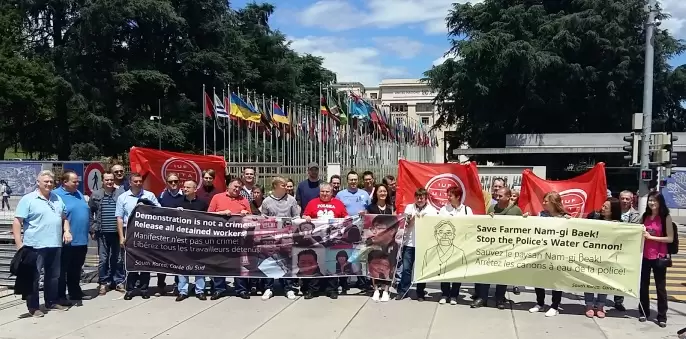IUF solidarity with Korean unions as government steps up repression

Nearly 600 KCTU leaders and members have been arrested or detained in connection with the 2015 strikes and protests which form the basis of Han’s indictment. Seven are still in jail and 13 have been convicted and sentenced from 8 months to 1.5 years in prison. KCTU General Secretary Lee Young-joo has not been able to leave the union office since an arest warrant on criminal charges was issued in December last year.
July 17, the UN Special Rapporteur on the Rights to Freedom of Peaceful Assembly and of Association delivered a report to the Human Rights Council which is highly critical of the growing criminalization of protest and trade union activity in Korea. A delegation of NGOs including the KCTU travelled to Geneva to attend the session of the Human Rights Council and to demonstrate outside the UN headquarters, where they were joined on June 15 by an international IUF group. The following day, the IUF secretariat hosted a visit from the Korean delegation including KCTU international director Ryu Mikyung and Baek Minjuwha, the daughter of farmer Baek Nam-gi. Baek was knocked unconscious by police water cannon when police attacked participants in the Seoul national rally on November 14 last year, and has been in a comma ever since. Through its office in Korea the IUF has been actively supporting the farmers movement, and particularly the struggle against the Trans-Pacific Partnership Agreement (TPP) which strengthens the power of global agribusiness at the expense of farmers’ livelihoods, alongside the defense of the unions and their rights.